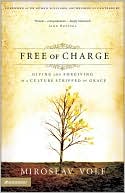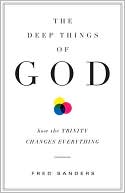Acts 10 (Click to read)
Jesus left his disciples with the promise that they would be “his witnesses in Jerusalem and in all Judea and Samaria, and to the ends of the earth.” There was one major problem with this world changing plan. The disciples were Jews. Now of course there is no inherent problem with being Jewish. However, at the time there was weaved into Jewish cultural identity a certain hubris about their moral superiority. You can see this in Peter’s comment: “You yourselves know how unlawful it is for a Jew to associate wit or to visit anyone of another nation”(10:28). Unlawful? Good luck trying to find that in the OT law. But it was very prevalent within the Jewish religious tradition and culture. Now if part of your core identity is never to taint your holiness by associating with anyone not of the same nationality as you, becoming a witness to the ends of the earth seems pretty unlikely. The conviction that non-Jews were “unclean” was so ingrained in Peter’s mind that questioning it probably never occurred to him. So God’s response is to shake up Jewish cultural values and transform them, at least for Christians, into Christ-centered values.
What happened with early Jewish Christians happens everywhere the gospel makes inroads. There are so many values and beliefs ingrained in us by our culture that we never think to question them. These values are what we have always believed to be true, and we never even think whether Christianity changes it. For example, rugged individualism, a value of a particular view of freedom, our consumer mentality, dislike and distrust of other cultures, unquestioning commitments to certain economic philosophies, etc. can become such a part of our identity that we never think to question whether they are right and Christ-centered. The transformation of our cultural habits is perhaps the most profound and difficult change for no other reason than we are often ignorant that a change is needed. So there are several valuable lessons to learn here.
First, culture is not neutral. Our national heritage is not a benign influence. Indeed, there is no such thing as a neutral value. It is either good and Christ exalting, or it is wrong and Christ belittling. We cannot assume that because our parents believed something and everyone around us believes it that it is therefore right and true. God alone determines what is clean and unclean. Secondly, our cultural biases often greatly diminish our effectiveness as witnesses for Jesus Christ. American individualism, for example, disables the transformative influence of the church, a community. Thirdly, we are often blind to the detrimental values of our particular culture. It virtually impossible for us to critique our cultural biases. Even when we turn to Scripture, our understanding of Scripture is effected by our cultural perspective. And fourthly, Christ must transform us deep down into even our cultural identity. The gospel doesn’t just transform immoral people into moral people. It transform idolaters into worshippers of Christ, and that means that idolatrous culture must change into Christ exalting culture.
So how does the gospel transform us that deep? How do we seek to dig out the deep roots of sinful culture that has flourished in us since we were born? Obviously, I don’t have all the answers, but here are some ideas.
First, bombard your mind with the Scriptures. But don’t just read the Scripture, seek to uncover the cultural context of the Bible. The Bible is after all a product of a foreign culture. As you reflect on it, it will force you to reflect upon your own cultural identity.
Second, read broadly. Interact with the literature and history of other cultures. Read early American literature and history, British, French, Russian, African, Asian, etc. literature and history. Read ancient Christians, the Reformers, Puritans, and Christians of other nationalities. Of course, this takes time, lots of time. But don’t restrict your reading to contemporary American writing, even if it is Christian writing.
Thirdly, seek out friendships with peoples of other religions and cultures. We have a greater opportunity than ever to do this, since America is becoming more and more diverse. Don’t begrudge this. Embrace it as an opportunity to grow in Christ.
Fourthly, when you get the chance ask missionaries all the questions that you can about the cultures they are trying to reach, and their thoughts about American culture. You will discover that these individuals who are constantly faced with their own biases coming into conflict with those of another culture have some deep and excellent insights. If any one else has more ideas, I am open to them.
Tuesday, August 19, 2008
Subscribe to:
Post Comments (Atom)









No comments:
Post a Comment